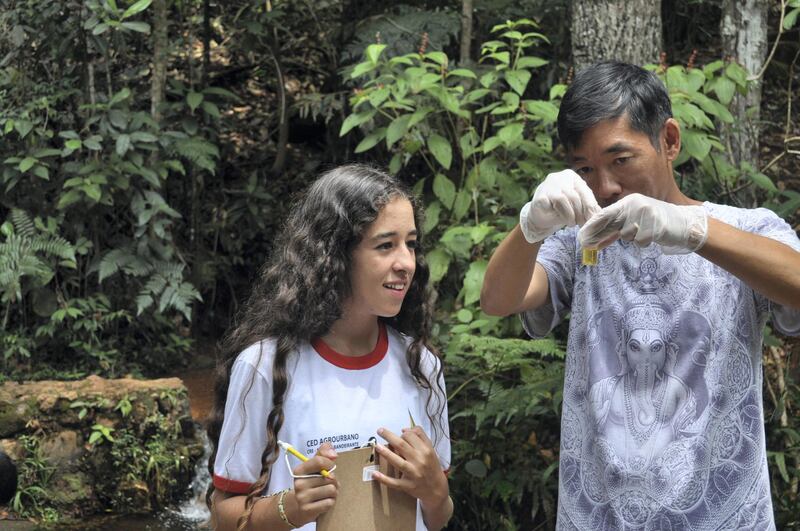For more than decade, the Zayed Sustainability Prize has funded projects around the world, bringing renewable energy to rural areas all while providing jobs and creating micro-economies.
Last year, the prize announced a refocus that recognised the need for new categories to be added to challenge sustainable solutions across multiple sectors.
One of the major changes for the 2019 award of the renamed prize has been new categories for global high schools.
The award has challenged young people to take responsibility for develop new green community projects in their own school, and inspire surrounding communities to take up similar initiatives.
The 2018-19 awards cycle saw a record 2,101 entries submitted from 130 counties across each of the categories of health, food, energy and water.
In the history of the Prize, there have been four global high school finalists and one winner of the prize from the UAE.
Muntinlupa National High School in the Philippines has more than 10,000 pupils, and about 400 teachers.
The school’s submission is geared towards providing affordable energy by converting micro algae to biodiesel, which can be used as a green alternative to fuel.
Algae absorbs up to 18,000 tonnes of carbon dioxide per acre, per year so it also acts as an effective method of reducing carbon emissions.
The project hopes to provide a source of income to communities, who can sell cultivated algae and related products.
The smaller American School of Dubai has 1,900 pupils, and was established in 1966 by the Dubai Petroleum Company to educate the children of expatriate workers from America.
The school is another finalist in the GHS category, and has introduced an industrial composter using food and landscaping waste and a beehive on campus.
“Our work is increasingly based on the notion that sustainability is not separate from other aspects of life and learning,” a school spokesman said.
“It is a crucial component that allows our community to recognize the importance of the connections between economic, social, and environmental components of what we do in the wider world.
“Our students have been integral in eliminating plastic water bottles from our campus, creating a sustainability mission statement and establishing best practices for sustainability.”
_______________
Read more:
Two thousand UAE solar lanterns to bring light to off-grid island in Bangladesh
School lessons dedicated to Sheikh Zayed will inspire leaders of the future
_______________
Another Global High School finalist is the Student’s Educational and Cultural Movement of Ladakh (Secmol), a non-profitable organisation in Jammu and Kashmir, India.
Since 1988, government reforms have been enforced to improve the school’s pass rate in the tenth grade from 5 per cent, to 75 per cent.
The campus aims to be self-sustainable by using solar energy and solar panels.
It has its own garden, solar cookers and heaters and all buildings there are solar heated, reducing the use of fuel to heat rooms in winter, when temperatures regularly drop below freezing.
The kitchen is currently 33 per cent self sufficient through its gardens, with an aim of increasing that to 90 per cent.
Another finalist, Ong’Ata Barrikoi, is a school in the heart of the Maasi Mara in Kenya, one of east Africa’s greatest game reserves.
The school is for young adults from five different tribes, including Kipsigis, Maasai, Kuria, Kisii and Luo.
Like most of the schools, Ong’Ata Barrikoi is addressing key sustainability goals laid down by the United Nations.
Pupils and teachers there have developed permaculture gardens and a food program to address malnourishment among children in the area.
Rainwater collection systems and grey water recycling has placed less pressure on the need for river water, and solar panels power both girls and boys school buildings.
A school in Brazil has similar ambitions to become self sufficient, and reduce its demand for power from the national grid.
The Centro Educacional Agrourbano in the Distrito Federal area of central Brazil hopes to become the first completely sustainable school in the country, and a centre of excellence for others to follow.
“One of the main challenges we expect to overcome lies in financing,” the school said.
“This has been a key issue over the last few years because, as it stands, our project is limited in scope and scale by the costs that are involved in establishing it.
“Another substantial challenge we wish to see solved is the importance of dedicated environmental education in our country, proving that it is not only important for the country to recognise the relevance of the environmental questions but also to embody this mindset with future generations.”








